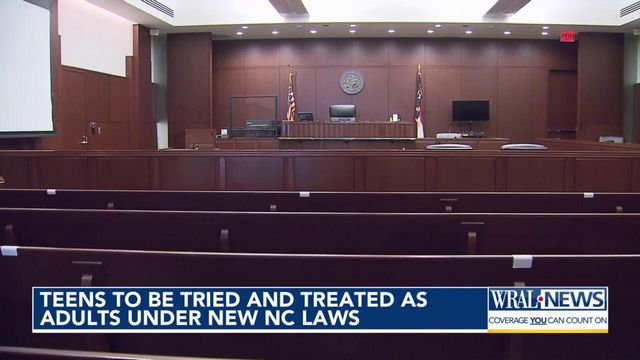'We have a responsibility': New law aims to try younger teens as adults for murder
When the mass shooting occurred in Hedingham in October 2022, very little was known or released publicly about 15-year-old Austin Thompson, who is accused of killing five people in the Raleigh neighborhood.
A law, which took effect Dec. 1, will make it easier for authorities to try teens, specifically teenagers aged 13, 14 and 15, as adults.
It is a major change in how juvenile cases are handled, according to Wake County District Attorney Lorrin Freeman.
“Historically, anything that happens in juvenile court is strictly confidential,” she said.
Freeman also said the change is a direct response to an increase in murder cases involving juveniles.
According to researchers from the School of Government at the University of North Carolina at Chapel Hill, 94 teens have been charged with murder in North Carolina this year, a jump from 90 in 2022 and 81 in 2021.
“We have a responsibility to our community to use the law in a way to protect the larger community,” Freeman said. “We have had several instances now where juveniles have been charged with murder.”
The law, partially named “Lyric and Devin’s Law” after Lyric Woods and Devin Clark, the two teens who were killed by another teenager last year in Orange County, allows district attorneys to make determinations for anyone 13 and older accused of first-degree murder to be sent to a grand jury for indictment.
Police filed a juvenile petition against a 17-year-old in connection to Woods’ and Clark’s deaths. In that case, law enforcement got information that the teenage suspect fled to Delaware, but law enforcement was unable to put out his name or photo.
In Thompson’s case, a probable cause hearing at juvenile court would be needed.
According to Freeman, the new law would allow both cases to be taken straight to a grand jury session.
“That provision would allow these cases to move more expeditiously through the system,” she explained.
The new law also mandates all juveniles charged with felonies to receive mental health assessment and, if necessary, be provided a care team to work with.














